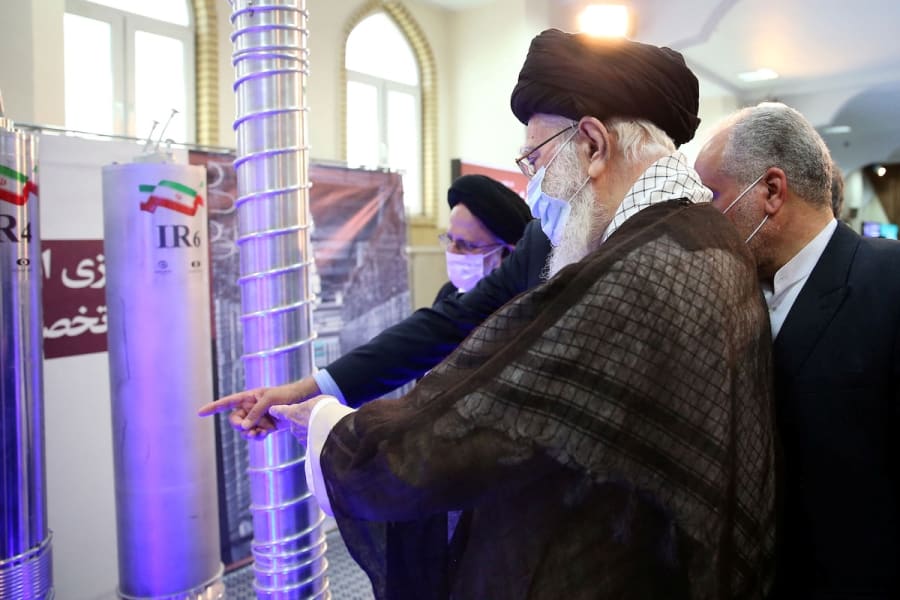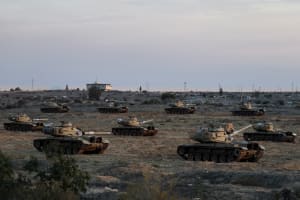IAEA withholds criticism of Iran's nuclear program violations; US response deemed inadequate, say analysts

The International Atomic Energy Agency (IAEA), the United Nations nuclear watchdog, refrained from formally criticizing the Iranian regime’s flagrant nuclear program violations despite Washington’s efforts to adopt a resolution against Tehran.
The IAEA’s Board of Governors, which convenes once a quarter in the Austrian capital of Vienna, did not announce a specific deadline for when Iran should prove its compliance.
Israel, the United States, and other Western allies are concerned the Iranian regime has ambitions to develop nuclear weapons capabilities. Tehran officially claims that its nuclear program is only intended for peaceful purposes, such as generating electricity and medical research, however, the actions of the Islamist state suggest otherwise.
The Iranian regime has invested billions of dollars in covert, fortified and heavily guarded subterranean nuclear facilities. Furthermore, the regime has systematically prevented international observers from properly examining its nuclear facilities and Iran has reportedly developed ballistic missiles that could eventually be fitted with nuclear warheads.
Iran's ambitions to develop nuclear weapons are particularly concerning for Israel as the regime openly calls for the destruction of the Jewish state.
Andrea Stricker, deputy director of the Foundation For Defense of Democracies (FDD), criticized the Biden administration for failing to censor Iran's nuclear program violations.
“Washington should have included the IAEA reporting threat in a legally binding resolution at the board meeting as well as censured Iran for its violations,” Stricker said and added a warning: “If America and its allies fail to follow through, Iran may decide that this year presents an ideal opportunity to break out of its nonproliferation commitments and seek nuclear weapons,” Stricker assessed.
FDD Senior Advisor Richard Goldberg echoed Stricker’s sentiment by warning that Tehran increasingly believes that it can approach the nuclear threshold with impunity.
“Iran is learning an important lesson — it can walk up to the nuclear threshold and suffer zero consequences, not even a censure resolution. Promises of future action do nothing to push back on Iran’s nuclear threat here and now. Tehran will continue to respond accordingly, inching its way toward breakout,” Goldberg warned.
The late December, the IAEA reported that Iran had tripled its production to 60% enriched uranium, with enough material for potentially producing three nuclear bombs.
U.S. National Security Council Spokesman John Kirby responded to the IAEA's December report by stressing the dangerous combination of Iran’s rapidly advancing nuclear program and its aggressive terrorist proxy policy throughout the Middle East.
“Iran’s nuclear escalation is all the more concerning at a time when Iran-backed proxies continue their dangerous and destabilizing activities in the region, including the recent deadly drone attack and other attempted attacks in Iraq and Syria and the Houthi attacks against commercial shipping vessels in the Red Sea,” Kirby stated.
Some Israeli and Western pundits believe the Iranian regime deliberately encouraged its terror proxy Hamas in Gaza to attack the Jewish state on Oct. 7, specifically to divert the attention of the international community from Iran’s nuclear program.
American physicist David Albright, considered to be a world expert on nuclear weapons programs, warned that the Islamic Republic of Iran was dangerously close to acquiring a nuclear bomb.
The former UN weapons inspector in Iraq summarized his conclusions in a report published on Jan. 8 and wrote: “US military cooperation with Israel aimed at destroying Iran’s nuclear capabilities should be bolstered, ensuring Israel can decisively strike Iran’s nuclear sites on short notice if there are signs that Iran is moving to build nuclear weapons, including the ability to deliver a second strike if Iran reconstitutes those activities.
While the United States failed to convince the global atomic energy organization to censor Iranian non-compliance, Washington recently warned that Iran’s obstruction could force the international community to embrace alternative measures against Tehran.
“We believe we have come to the point that we and the broader international community must consider anew how to respond to Iran’s continued stonewalling,” the U.S. government stated.
“We cannot allow Iran’s current pattern of behavior to continue,” according to the statement.

The All Israel News Staff is a team of journalists in Israel.













